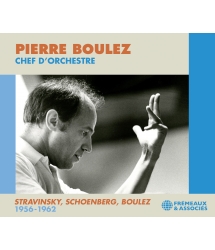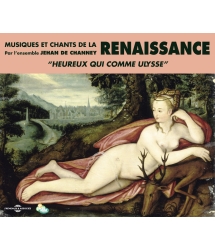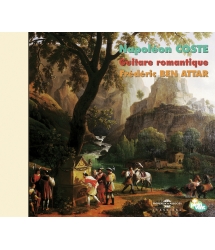- Our Catalog
- Philosophy
- Philosophers of the 20th century and today
- History of Philosophy (PUF)
- Counter-History and Brief Encyclopedia by Michel Onfray
- The philosophical work explained by Luc Ferry
- Ancient thought
- Thinkers of yesterday as seen by the philosophers of today
- Historical philosophical texts interpreted by great actors
- History
- Books (in French)
- Social science
- Historical words
- Audiobooks & Literature
- Our Catalog
- Jazz
- Blues
- Rock - Country - Cajun
- French song
- World music
- Africa
- France
- Québec / Canada
- Hawaï
- West Indies
- Caribbean
- Cuba & Afro-cubain
- Mexico
- South America
- Tango
- Brazil
- Tzigane / Gypsy
- Fado / Portugal
- Flamenco / Spain
- Yiddish / Israel
- China
- Tibet / Nepal
- Asia
- Indian Ocean / Madagascar
- Japan
- Indonesia
- Oceania
- India
- Bangladesh
- USSR / Communist songs
- World music / Miscellaneous
- Classical music
- Composers - Movie Soundtracks
- Sounds of nature
- Our Catalog
- Youth
- Philosophy
- News
- How to order ?
- Receive the catalog
- Manifesto
- Dictionnary











- Our Catalog
- Philosophy
- Philosophers of the 20th century and today
- History of Philosophy (PUF)
- Counter-History and Brief Encyclopedia by Michel Onfray
- The philosophical work explained by Luc Ferry
- Ancient thought
- Thinkers of yesterday as seen by the philosophers of today
- Historical philosophical texts interpreted by great actors
- History
- Books (in French)
- Social science
- Historical words
- Audiobooks & Literature
- Our Catalog
- Jazz
- Blues
- Rock - Country - Cajun
- French song
- World music
- Africa
- France
- Québec / Canada
- Hawaï
- West Indies
- Caribbean
- Cuba & Afro-cubain
- Mexico
- South America
- Tango
- Brazil
- Tzigane / Gypsy
- Fado / Portugal
- Flamenco / Spain
- Yiddish / Israel
- China
- Tibet / Nepal
- Asia
- Indian Ocean / Madagascar
- Japan
- Indonesia
- Oceania
- India
- Bangladesh
- USSR / Communist songs
- World music / Miscellaneous
- Classical music
- Composers - Movie Soundtracks
- Sounds of nature
- Our Catalog
- Youth
- Philosophy
- News
- How to order ?
- Receive the catalog
- Manifesto
- Dictionnary
du lied romantique au cabaret berlinois
(Schubert, Schumann, Brahms, Mahler, Strauss, Wagner...)
Ref.: FA5890
Artistic Direction : Philippe Lesage & Téca Calazans
Label : FREMEAUX & ASSOCIES
Total duration of the pack : 2 hours 29 minutes
Nbre. CD : 2
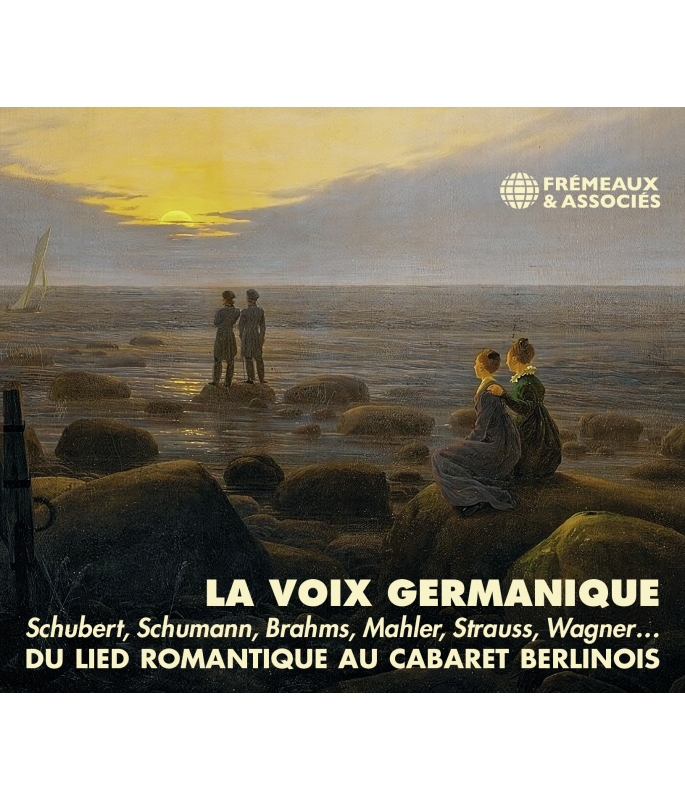
du lied romantique au cabaret berlinois
(Schubert, Schumann, Brahms, Mahler, Strauss, Wagner...)
With these Lieder, those miniatures with sensual melodies where the song condenses a destiny, this anthology provides a path through over a century of Germany’s culture. The overview here illustrates the Romantic Lied of the 19th century, as well as its extensions a hundred years later, with orchestral songs and hybrid readings nuanced by jazz and the spirit of Berlin’s cabarets.
Philippe LESAGE
CD1 - SCHUBERT : STÄNDCHEN (DIETER FISHER-DIESKAU) • ABSCHIED (D. FISHER-DIESKAU) • GUTE NACHT (HANS HOTTER) • DIE POST (H. HOTTER) • DER LEIERMANN (H. HOTTER) • ERLKÖNIG (GÉRARD SOUZAY) • GANYMED (ELISABETH SCHWARZKOPF) • IM FRÜHLING (E. SCHWARZKOPF) • AN DIE MUSIK (E. SCHWARZKOPF) • GRETCHEN AM SPINNRADE (E. SCHWARZKOPF) • NACHTVIOLEN (E. SCHWATZKOPF) • DIE FLORELLE (G. SOUZAY) • DER DOPPLEGÄNGER (G. SOUZAY). SCHUMANN : L’AURORE LA ROSE LE LYS (D. FISHER-DIESKAU) • INVOCATION (D. FISHER-DIESKAU) LES NOCES (D. FISHER DIESKAU) • CHANSON DE L’AIMÉ (D. FISHER-DIESKAU) • HISTOIRE ANCIENNE (D. FISHER-DIESKAU) • PLEURS EN RÊVE (D. FISHER-DIESKAU) • FANTASMAGORIE (D. FISHER-DIESKAU). BRAHMS : MEERFAHRT (D. FISHER-DIESKAU) • DER TOD DAS IST DIE KÜHLE NACHT (D.FISHER-DIESKAU). WOLF : GESANG WEYLAS (CHRISTA LUDWIG) • AUF EINER WANDERUNG (C. LUDWING) • MIGNON (IRMGARD SEEFRIED).
CD2 - MAHLER : WENN MEIN SCHATZ HOCHZEIT MACHT (CHRISTA LUDWIG) • GING HEUT’MORGEN ÜBERS FELD (C. LUDWIG). RICHARD STRAUSS : IM ABENDROT (E. SCHWARZKOPF) • SEPTEMBER (E. SCHWARZKOPF). WAGNER : ISOLDES LIEBESTOD (C. LUDWIG). BERG : SEELE WIE BIST DU SCHÖNER (BETHANY BEARDSLEE) • SAHST DU MACH DEM GEWITTERREGEN (B. BEARDSLEE) • ÜBER DIE GRENZEN DES ALL (B. BEARDSLEE) • NICHTS IST GEKOMMEN (B. BEARDSLEE) • HIER IST FRIEDE (B. BEARDSLEE) • LULU’S SONG (HELGA PILARCZYK. WEILL : COMPLAINTE DE MACKIE (WOLFGANG NEUSS) • DUO DE LA JALOUSIE (LOTTE LENYA & WILLY TRENK-TREBITSCH) • BARBARA SONG (L. LENYA) • SURABAYA JONNY (L. LENYA) • BILBAO SONG (L. LENYA) • ALABAMA SONG (L. LENYA) • DENN WIE MAN SICH BETTET (L. LENYA). HOLLAENDER : FALLING IN LOVE AGAIN (MARLENE DIETRICH) • WENN DIE BESTE FREUDIN (M. DIETRICH & MARGO LION) • JONNY (M. DIETRICH). SCHULTZE : LILI MARLENE (M. DIETRICH). RUDOLF NELSON : DAS NACHTGEPENST (KURT GERRON).
DIRECTION ARTISTIQUE : PHILIPPE LESAGE ET TECA CALAZANS
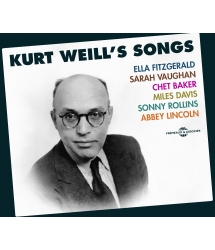
ELLA FITZGERALD • SARAH VAUGHAN • CHET BAKER • MILES...
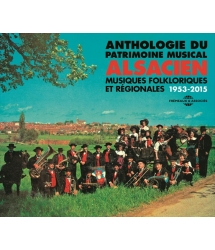
MUSIQUES FOLKLORIQUES ET RÉGIONALES
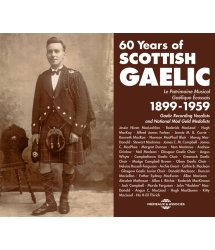
60 YEARS OF SCOTTISH GAELIC
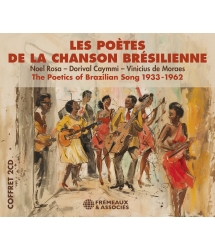
Noel Rosa - Dorival Caymmi - Vinicius De Moraes
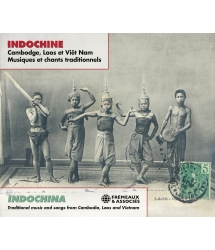
Traditional Music & Songs





-
PisteTitleMain artistAutorDurationRegistered in
-
1Franz Schubert - Ständchen, du recueil Schwannengesang, D. 957 (Le Chant du Cygne)Dietrich Fischer-DieskauLudwig Rellstab00:03:391951
-
2Franz Schubert - Abschied, du recueil Schwannengesang, D. 957 (Le Chant du Cygne)Dietrich Fischer-DieskauLudwig Rellstab00:03:041955
-
3Franz Schubert - Gute Nacht, du recueil Die Winterreise D 911 (Le Voyage d’Hiver)Hans HotterWilhelm Müller00:06:041954
-
4Franz Schubert - Die Post, du recueil Die Winterreise, D. 911 (Le Voyage d’Hiver)Hans HotterWilhelm Müller00:02:131954
-
5Franz Schubert - Der Leiermann, du recueil Die Winterreise, D. 911 (Le Voyage d’Hiver)Hans HotterWilhelm Müller00:04:181954
-
6Franz Schubert - ErlKönig, D. 328 (Le Roi des Aulnes)Gérard SouzayJohann Wolfgang von Goethe00:03:511961
-
7Franz Schubert - Ganymed, D. 544 opus 19 n°3Elisabeth SchwarzkopfJohann Wolfgang von Goethe00:04:471952
-
8Franz Schubert - Im Frühling, D. 882Elisabeth SchwarzkopfErnst Conrad Friedrich Schulze00:04:251952
-
9Franz Schubert - An Die Music, D. 547 op 88 n°4Elisabeth SchwarzkopfFranz Adolf Friedrich Schober00:02:381952
-
10Franz Schubert - Gretchen Am Spinnrade, D. 118 op 2Elisabeth SchwarzkopfJohann Wolfgang von Goethe00:03:251952
-
11Franz Schubert - Nachtviolen, D. 752Elisabeth SchwarzkopfJohann Baptist Mayrhofer00:02:471952
-
12Franz Schubert - Die Florelle D. 550Gérard SouzayChristian Friedrich Daniel Schubart00:01:591961
-
13Franz Schubert - Der Dopplegänger, du recueil Schwanengesang D.957 (Le Chant du cygne)Dietrich Fischer-DieskauHenri Heine00:04:411961
-
14Robert Schumann - Die Rose, Die Lilie, Die Taube, du recueil Dichterliebe op.48 (Les Amours du Poète)Dietrich Fischer-DieskauHenri Heine00:00:311960
-
15Robert Schumann - Und Wüssten’s Die Blumen, du recueil Dichterliebe op.48 (Les Amours du Poète)Dietrich Fischer-DieskauHenri Heine00:01:141960
-
16Robert Schumann - Das Ist Ein Flötten Und Geign, du recueil Dichterliebe op.48 (Les Amours du Poète)Dietrich Fischer-DieskauHenri Heine00:01:211960
-
17Robert Schumann - Hoï Ich Das Liedchen Klingen, du recueil Dichterliebe op.48 (Les Amours du Poète)Dietrich Fischer-DieskauHenri Heine00:01:541960
-
18Robert Schumann - Ein Jüngling Liebt Ein Mädchen, du recueil Dichterliebe op.48 (Les Amours du Poète)Dietrich Fischer-DieskauHenri Heine00:01:051960
-
19Robert Schumann - Ich Hab’ Im Traume Geweinet, du recueil Dichterliebe op.48 (Les Amours du Poète)Dietrich Fischer-DieskauHenri Heine00:02:481960
-
20Robert Schumann - Aus Alten Marchen, du recueil Dichterliebe op.48 (Les Amours du Poète)Dietrich Fischer-DieskauHenri Heine00:02:441960
-
21Johannes Brahms - Meerfahrt op 96 n°4Dietrich Fischer-DieskauHenri Heine00:03:001960
-
22Johannes Brahms - Der Tod, Das Ist Die Kühle Nacht op 96 n° 1Dietrich Fischer-DieskauHenri Heine00:03:221960
-
23Hugo Wolf - Gesang Weylas, du recueil Mörike-Lieder IHW 22Christa LudwigEduard Mörike00:01:391957
-
24Hugo Wolf - Auf Einer Wanderung, du recueil Mörike-Lieder IHW 23Christa LudwigEduard Mörike00:03:261957
-
25Hugo Wolf - Mignon, du recueil Goethe-Lieder IHW 10Imgard SeefriedJohann Wolfgang von Goethe00:03:071961
-
PisteTitleMain artistAutorDurationRegistered in
-
1Gustav Mahler - Wenn Mein Schatz Hochzeit Macht, du recueil Lieder Eines Fahrenden Gessellen IGM 5 (chants d’un compagnon errant)Christa LudwigGustav Mahler00:04:211958
-
2Gustav Mahler - Ging Heut’Morgen Übers Feld, du recueil Lieder Eines Fahrenden Gessellen IGM 5 (chants d’un compagnon errant)Christa LudwigGustav Mahler00:04:461958
-
3Richard Strauss - Im Abendrot, du recueil 4 Letzte Lieder, TrV 296 (Quatre dernier Lieder)Elisabeth SchwarzkopfJoseph von Eichendorff00:07:171953
-
4Richard Strauss - September, du recueil 4 Letzte Lieder, TrV 296 (Quatre dernier Lieder)Elisabeth SchwarzkopfHerman Hesse00:04:081953
-
5Richard Wagner - Isoldes Liebestod, Acte 3 de Tristan & IsoldeChrista LudwigRichard Wagner00:06:491962
-
6Alban Berg - Seele, Wie Bist Du Schöner, du recueil Fünf Orchestenlieder nach Ansichtskar tentexten von Peter Altenberg op 4Betty BeardsleePeter Altenberg00:03:011959
-
7Alban Berg - Sahst Du Nach Dem Gewitterregen Den Wald, du recueil Fünf Orchestenlieder nach Ansichtskar tentexten von Peter Altenberg op 4Betty BeardsleePeter Altenberg00:01:101959
-
8Alban Berg - Über Die Grenzen Des All, du recueil Fünf Orchestenlieder nach Ansichtskar tentexten von Peter Altenberg op 4Betty BeardsleePeter Altenberg00:01:361959
-
9Alban Berg - Nichts Is Gekommen, du recueil Fünf Orchestenlieder nach Ansichtskar tentexten von Peter Altenberg op 4Betty BeardsleePeter Altenberg00:01:311959
-
10Alban Berg - Hier Ist Friede, du recueil Fünf Orchestenlieder nach Ansichtskar tentexten von Peter Altenberg op 4Betty BeardsleePeter Altenberg00:03:381959
-
11Alban Berg - Lulu’s Song, de Lulu Suite IAB 4Helga PilarczykAlban Berg00:02:141961
-
12Kurt Weill - La Complainte de Mackie, extrait de l'Opéra de quat'sousWolfgang NeussBertold Brecht00:03:041958
-
13Kurt Weill - Duo de la Jalousie / EiffersuchtsduettLotte Lenya, Willy Trenk-TrebistchBertold Brecht00:01:231930
-
14Kurt Weill - BarbarasongLotte LenyaBertold Brecht00:02:031930
-
15Kurt Weill - Surabaya JonnyLotte LenyaBertold Brecht00:03:001929
-
16Kurt Weill - Bilbao SongLotte LenyaBertold Brecht00:03:041929
-
17Kurt Weill - Alabama Song, extrait de Aufstieg und fall der Stadt MahagonnyLotte LenyaBertold Brecht00:03:001930
-
18Kurt Weill - Denn Wie Man Sich Bettet, So Lieght Man, extrait de Aufstieg und fall der Stadt MahagonnyLotte LenyaBertold Brecht00:02:541930
-
19Friedrich Hollaender - Falling In Love AgainMarlene DietrichReg Connelly00:03:101930
-
20Friedrich Hollaender - Wenn Die Beste FreundinMarlene DietrichFriedrich Hollaender00:03:101928
-
21Friedrich Hollaender - JonnyMarlene DietrichFriedrich Hollaender00:03:091931
-
22Norbert Schultze - Lili Marlene, extrait de Der Blaue Engel (L’Ange Bleu)Marlene DietrichHans Leip00:03:241945
-
23Rudolf Nelson - Das NachtgespenstKurt GerronFriedrich Hollaender00:03:381930
GERMAN SONG:
FROM ROMANTIC LIEDER TO THE CABARETS OF BERLIN
The poetic dimension of German song
This anthology allows you to discover more than a century of Germany’s culture. It deals with the Romantic Lied of the 19th century, and its consequent evolutions at the turn of the 20th century with orchestral versions of songs and readings that show the influences of jazz, musicals and cabarets. The composers featured here are either German (Robert Schumann, Johannes Brahms, Richard Strauss, Kurt Weill, Friedrich Hollaender) or Austrian (Franz Schubert, Hugo Wolf, Gustav Mahler, Alban Berg). As elegant men of letters, they would be capable of setting poetic texts to music, pieces written by major writers such as Goethe, Heine and Brecht, although they didn’t neglect minor authors known for the musicality of their verse.
How can the Romantic Lied be defined?
In a programme she presented on Radio France Culture, Laurence Equilbey would emphasise that “the Lied phenomenon is important.” She clarified by saying it was music without insolence, anchored in the country and its people, and its origins lay in Germany’s Romantic movement. Even though its form is not exactly contemporary with Romanticism in literature, the Lied necessarily achieved popularity due to its ingredients (as shown by the setting to music of Goethe’s poem Der Erlkönig (“The Era King.”) Of course, it was also the emergence of a popular art-form (one that already interested Goethe and Brentano) but it was propagated by the bourgeoisie at whom it was aimed. It reminds one of the works written for meetings between friends – like the famous Schubertiades held to celebrate Schubert – where people sang only for pleasure.
In the Romantic Lied, mythology and aristocratic figures are excluded; the songs refer to the lives of people who are simple and humble, like the character of the miller or the wanderer, the vagabond, the central figure in Schubert’s Winterreise. XXth century composers like Richard Strauss, Gustav Mahler, Arnold Schoenberg and Alban Berg would always make reference to the Lied, sometimes in the classic voice-piano format. But they would innovate by broadening its expression towards the orchestral Lied. With Kurt Weill, Hanns Eisler and Paul Dessau, this song-form would stand apart by its militancy, both political and social, in its activism, and it would take on the showy guise of the universe to which jazz and the cabarets belonged.
One reason for its success at the time of its creation (and still today) is due to a form of simplicity that stems from the popular nature of the Lied itself. It is a simplicity that can be resumed as follows: the Lied is the statement of a poetic and musical idea clasped inside a brief form which, musically speaking, demands neither development nor counterpoint, but calls for a form of dialogue between the voice that states the poetic text and the accompaniment of the piano, which has to come forward to be in tune with the sentiment.
The Lied is in essence a miniature that in only a few words condenses a destiny over an exploration of existential abysses. Its preferred themes (which are little-explored by classic songs that favour the desire and grievances of love) deal with aimlessness, consolation in death, and the consequences of a bond with nature, to which can be added the essential motif of all poetry, whatever its genre or country: the love for a woman who is unattainable. But we can emphasise that, beyond its recurrent themes, it is indeed the music that always has pre-eminence in the dialogue with poetry.
The romantic Lied established itself with Schubert. In his remarkable study published in the magazine Diapason, musicologist Sylvain Fort demonstrated that with Schubert we were witnessing a total transfiguration of the Volkslied (the “song of the people,” with its nuance and strong folklore connotations). A triple revolution took place, not only in politics and the imagination but also in performing. Henceforward, the Lied symbolised Romanticism’s relationship with the world. To underline the poetic revolution, we can point to Schubert’s friendly ties with the poets Mayrhofer (an Austrian) and Schober (born in Sweden to Austrian parents), and the sureness of the literary tastes of Schumann and Wolf.
The combination of voice and piano
Roland Barthes, who took singing lessons and hated the bourgeois pomposity in the voice of a Gérard Souzay, once commented in a radio programme: “In opera, it is the sexual timbre of the voice that is important; in the Lied, it is the tessitura that counts. So here, no excessive notes, no cries or outbursts, no physiological prowess. The tessitura is that modest space of the sounds that each of us can produce, and within whose limits it is possible to fantasise about the reassuring unity of the body. In all Romantic music, vocal or instrumental, it is the song of the natural body. It is music that has meaning only if I can sing it in my self with my body.” All recordings confirm this; all vocal timbres colour the universe of the Lied, but the extremes in the register that belong more to the world of opera are to be avoided. And so, in the Lied, the vocal technique is most often translated by a fusion between the air and the recitative.
In the literature of the Lied, the melodies are spellbinding and sensual. And the piano never counters the voice. In fact, as musicologist Sylvain Fort nicely puts it, “The piano constantly modulates, and it changes its tone as if in a conversation; it changes key, and the line of the song is constantly infused.” The finality is that the music should always have the last word in the dialogue with poetry. Besides, as the musicologist Hélène Cao has said, the music frees itself from its subjection to the verse in order to take charge of the dramatic and psychological evolution; and the forms are diversified by the changing of the piano part while the singer repeats the melody. It is important to note that all the 19th century composers were gifted pianists, and that this privileged the diversification of their writing, which itself went hand in hand with the diversification of the harmonic language.
Teca CALAZANS and Philippe LESAGE
adapted into english by Martin Davies
Our thanks to the musicologist Hélène Cao, and to Jean Buzelin for his knowledge of Kurt Weill’s Berlin years.
Bibliography: Anthologie du lied, Hélène Cao & Hélène Boisson (Buchet Chastel, Paris)
© 2025 FRÉMEAUX & ASSOCIÉS
Discographie
LA VOIX GERMANIQUE - DU LIED ROMANTIQUE AU CABARET BERLINOIS
CD1
1) Ständchen (Schubert – Ludwig Rellstab)
Du recueil Schwannengesang D 957 (Le Chant du Cygne) D 957
Dieter Fisher-Dieskau (baryton) Gerald Moore (piano)
7 octobre 1951
78 t HMV DB 21349
2) Abschied (Schubert – Rellstad)
Du recueil Schwanengesang D 957 (Le Chant du Cygne) D 957
Dieter Fisher – Dieskau (baryton) Gerald Moore (piano)
A Schubert Lieder Recital / 1955
LP HMV 1295
3) Gute Nacht (Schubert – Wilhelm Müller)
Recueil Die Winterreise D 911 (Le Voyage d’Hiver)
Hans Hotter (baryton) Gerald Moore (piano)
Mai 1954
Emi Angel Records 3521
4) Die Post (Schubert – Müller)
Recueil Die Winterreise D 911 (Le Voyage d’Hiver)
Same as 3
5) Der Leiermann (Schubert – Müller)
Recueil Die Winterreise D 911 (Le Voyage d’Hiver)
Same as 3
6) ErlKönig (Schubert – Goethe) D328
(Le Roi des Aulnes)
Gérard Souzay (baryton) Dalton Baldwin (piano)
Juin 1961
Philips 835 097 AY
7) Ganymed D.544 opus 19 N°3 (Schubert – Goethe)
Elisabeth Schwarzkopf (soprano) Edwin Fischer (piano)
Octobre 1952
Columbia 33 CX 1040
8) Im Frühling D.882 (Schubert – Schulze)
Same as 7
9) An Die Music D.547 op 88 N°4 (Schubert – Schober)
Same as 7
10) Gretchen Am Spinnrade D.118 op 2 (Schubert – Goethe)
Same as 7
11) Nachtviolen D752 (Schubert – Mayrhofer)
Same as 7
12) Die Florelle D 550 (Schubert – Schubart)
Gérard Suzay (bayton) Dalton Baldwin (piano)
Juin 1961
Philips 835 097 AY
13) Der Dopplegänger (Schubert – Heine)
Recueil Schwanengesang D.957 (Le Chant du cygne)
Same as 12
14) Die Rose, Die Lilie, Die Taube (Schumann – Henri Heine)
Du recueil Dichterliebe op.48 (Les Amours du Poète)
Dieter Fisher-Dieskau (baryton) Jorg Demus (piano)
1960
DG 18370
15) Und Wüssten’s Die Blumen (Schumann – Heine)
Du recueil Dichterliebe op.48 (Les Amours du Poète)
Same as 14
16) Das Ist Ein Flötten Und Geign (Schumann – Heine)
Du recueil Dichterliebe op.48 (Les Amours du Poète)
Same as 14
17) Hoï Ich Das Liedchen Klingen (Schumann – Heine)
Du recueil Dichterliebe op.48 (Les Amours du Poète)
Same as 14
18) Ein Jüngling Liebt Ein Mädchen (Schumann – Heine)
Du recueil Dichterliebe op.48 (Les Amours du Poète)
Same as 14
19) Ich Hab’ Im Traume Geweinet (Schumann – Heine)
Du recueil Dichterliebe op.48 (Les Amours du Poète)
Same as 14
20) Aus Alten Marchen (Schumann – Heine)
Du recueil Dichterliebe op.48 (Les Amours du Poète)
Same as 14
21) Meerfahrt op 96 n°4 (Brahms – Heine)
Dieter Fisher-Dieskau (baryton) Jorg Demus (piano)
1960
DG 18370
22) Der Tod, Das Ist Die Kühle Nacht op 96 n° 1 (Schumann – Heine)
(La mort, c’est la nuit fraiche)
Same as 21
23) Gesang Weylas (Hugo Wolf – Mörike)
Du recueil Mörike-Lieder IHW 22
Christa Ludwing (mezzo -soprano) Gerald Moore (piano)
1957
EMI Columbia 33 CX1552
24) Auf Einer Wanderung (Hugo Wolf – Mörike)
Du recueil Mörike-Lieder IHW 22
Same as 23
25) Mignon (Wolf – Goethe)
Du recueil Goethe-Lieder IHW 10
Imgard Seefried (soprano) Erik Werba (piano)
LP Anthologie du lied (2)
1961
DG 18155
CD2
1) Wenn Mein Schatz Hochzeit Macht (Mahler)
Recueil Lieder Eines Fahrenden Gessellen IGM 5 (chants d’un compagnon errant)
Christa Ludwing (mezzo-soprano) Philarmonia Orchestra, dir Sir Adrian Boult
18 oct 1958
EMI Angel records S 35776
2) Ging Heut’Morgen Übers Feld (Mahler)
Recueil Lieder Eines Fahrenden Gessellen IGM 5 (chants d’un compagnon errant)
Same as 1
3) Im Abendrot (Richard Strauss – Joseph von Eichendorff)
Recueil 4 Letzte Lieder, TrV 296 (Quatre dernier Lieder)
Elisabeth Schwarzkopf (soprano) Philarmonia Orchestra, direction Otto Ackermann
25 Sept 1953
EMI Columbia 33 SC 107I
4) September (Richard Strauss – Herman Hesse)
Recueil 4 Letzte Lieder, TrV 296 (Quatre dernier Lieder)
Same as 3
5) Isoldes Liebestod (Wagner)
Acte 3 de Tristan & Isolde
Christa Ludwig ( mezzo zoprano) Philarmonia Orchestra , dir Otto Klemperer
25 mars 1962
EMI Columbia SAX 2462
6) Seele, Wie Bist Du Schöner (Alban Berg -Peter Altenberg)
(Ame, combien tu es plus belle)
Recueil Fünf Orchestenlieder nach Ansichtskartentexten von Peter Altenberg op 4
Betty Beardslee (soprano) Columbia Symphony Orchestra, direction Robert Craft
5 et 17 juin 1959
Columbia ML 5428 / MF 61035
7) Sahst Du Nach Dem Gewitterregen Den Wald (Berg -Altenberg)
(As-tu vu, après la pluie d’orage)
Same as 6
8) Über Die Grenzen Des All (Berg – Altenberg)
(Par-delà les frontières de l’univers)
Same as 6
9) Nichts Is Gekommen (Berg – Altenberg)
(Rien n’est venu)
Same as 6
10) Hier Ist Friede (Berg – Altenberg)
(Ici c’est la paix)
Same as 6
11) Lulu’s Song (Berg)
De Lulu Suite IAB 4
Helga Pilarczyk (soprano) London Symphony Orchestra, dir Antal Dorati
19 au 22 Juin 1961
Mercury SR -90278
12) La Complainte de Mackie (Kurt Weill – Bertold Brecht)
Extrait de L’Opéra de quat’sous
Wolfgang Neuss (Moritatsanger) / Orchestre des Sender Freies Berlin, direction Wilhelm Brückner – Ruggeberg
1958
CBS 78279
13) Duo de la Jalousie / Eiffersuchtsduett (Weill – Brecht)
Lotte Lenya et Willy Trenk -Trebistch ; Lewis Ruth Band, dir Theo Mackeben
1930
Ultraphon 77752
14) Barbarasong
Lotte Lenya, même formation que 13
15) Surabaya Jonny (Weill – Brecht)
Chanson de Happy End
Lotte Lenya, Theo Mackeben mit seinen Jazz Orchester
Berlin 1929
Orchestrola 2311
16) Bilbao Song (Weill – Brecht)
Chanson de Happy End
Lotte Lenya, même formation que 15
17) Alabama Song (Weill – Brecht)
Extrait de Aufstieg und fall der Stadt Mahagonny
Lotte Lenya & The Three Admirals ; direction Theo Mackeben & His Jazz Orchestra
Berlin 24 février 1930
Ultraphon A 37
18) Denn Wie Man Sich Bettet, So Lieght Man
Same as 17
19) Falling In Love Again (musique : Friedrich Hollaender – texte : Connelly)
Tiré de Der Blaue Engel (L’Ange Bleu)
Marlene Dietrich
6 février 1930
HMV B3524
20) Wenn Die Beste Freundin (Hollaender)
Marlene Dietrich, Margo Lion, Oscar Karlweiss et accompagnement au piano de Mischa Spoliansky
2 juin 1928
Electrola EG 892
21) Jonny (Hollaender)
Marlene Dietrich ; orchestre Peter Kreuder
1931
Ultraphon A887
22) Lili Marlene (musique : Norbert Schultze – texte : Hans Leip & Marlene Dietrich)
Marlene Dietrich ; orchestre Charles Magnante
7 septembre 1945
Decca 73031
23) Das Nachtgespenst (Rudolf Nelson ; texte : Friedrich Hollaender)
Kurt Gerron (chant) Rudolf Nelson (piano)
Mars 1930
Ultraphon Telefunken A388

